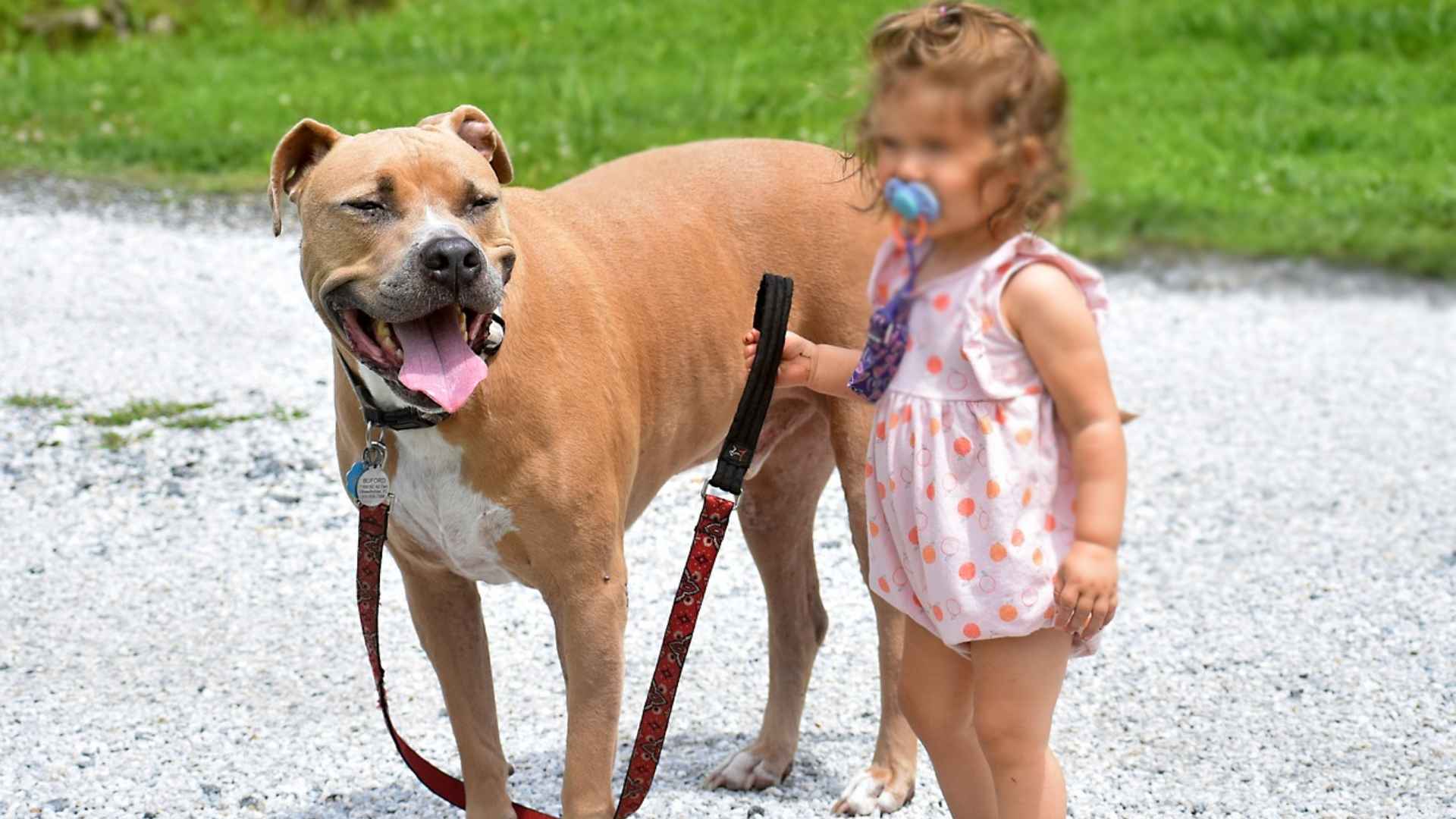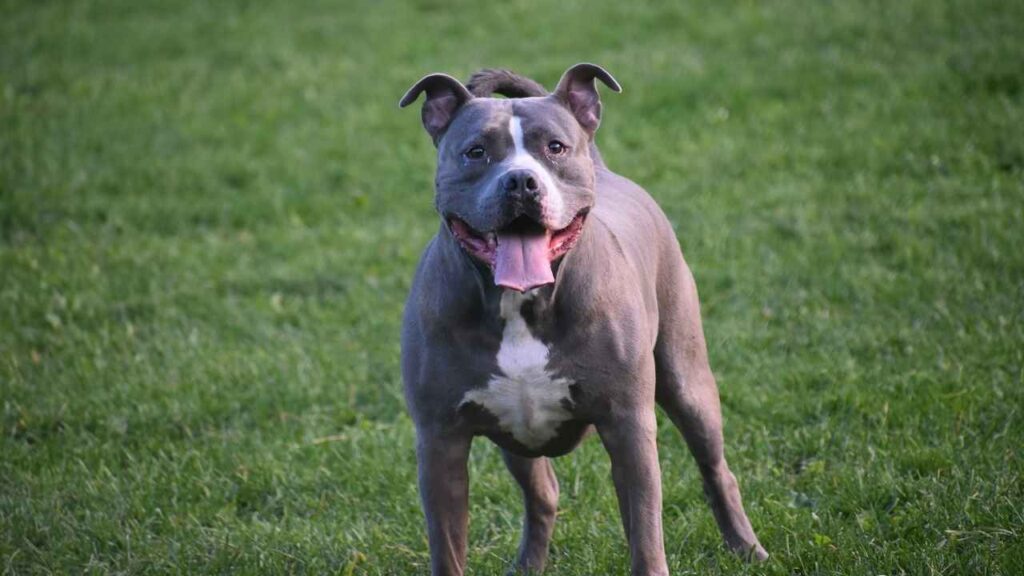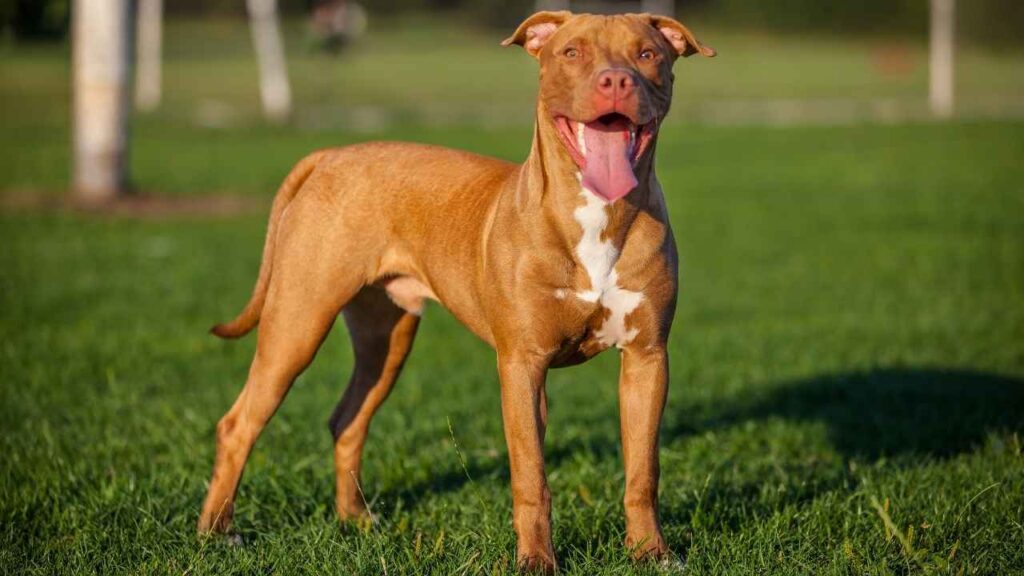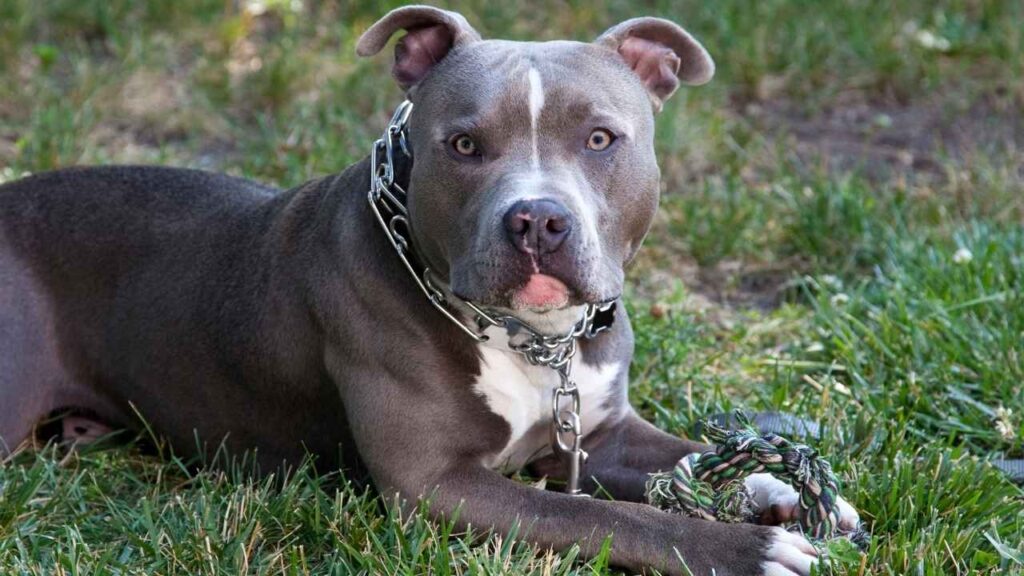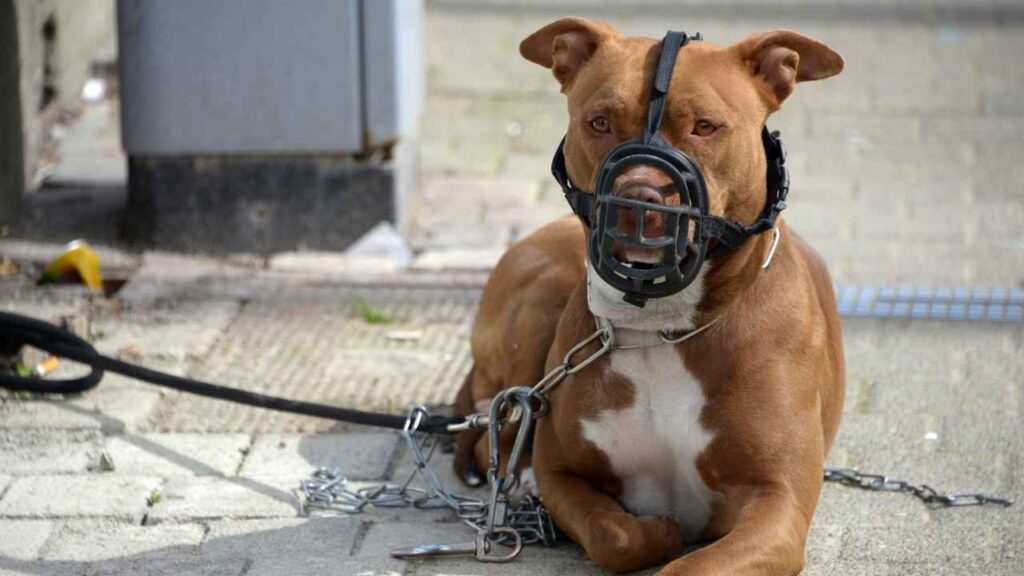Pitbulls often evoke strong opinions, yet many misconceptions surround these loyal and affectionate dogs. Understanding the true nature of pitbulls is essential for parents considering them as family pets. Despite their reputation, pitbulls can be excellent companions for children when raised in a loving, well-structured environment. By examining their temperament, historical background, and specific care needs, we can gain a clearer perspective on their capacity to be gentle, protective, and playful with young ones. This exploration not only sheds light on the breed’s true potential but also equips families with the knowledge to create a safe, harmonious home for both kids and pets.
When it comes to choosing a dog breed for your family, particularly if you have children, it’s essential to consider the dog’s temperament, behavior, and how well it integrates with your lifestyle. Among the breeds that often spark debate, Pitbulls are one of the most misunderstood. Known for their muscular build and bold appearance, they have garnered a reputation for being aggressive and dangerous. However, many people who own Pitbulls speak to their loving, gentle nature, especially when raised in the right environment.
Are Pitbulls good with kids? Yes, they can be, but like all dog breeds, much depends on how they are raised, trained, and socialized. Pitbulls are capable of being excellent family pets, but they require consistent training, positive reinforcement, and a structured home environment to thrive. This article will explore why Pitbulls make great pets for families with children, delve into the breed’s history, and offer tips for raising a well-behaved Pitbull that gets along with kids.
Are Pitbulls Good with Kids?
Pitbulls, when properly trained and socialized, are known for their affectionate and patient demeanor. They are often described as being loving, gentle, and loyal, especially towards their families. The fear surrounding Pitbulls often stems from their physical strength and the media’s portrayal of them as inherently aggressive dogs, but this is not the case. In fact, many Pitbulls are great with kids, and they can form close bonds with children when raised in a loving environment.
However, as with any dog breed, supervision is essential, particularly around younger children. No matter how friendly a dog is, interactions between dogs and children should always be supervised. Young children may inadvertently hurt a dog, or a dog may become overstimulated during play, so it’s crucial to teach both the child and the dog how to behave respectfully around each other.
The History and Appearance of Pitbulls
The term “Pitbull” refers to a group of breeds, not a single breed. The primary breeds under this umbrella include the American Pit Bull Terrier, the American Staffordshire Terrier, and the Staffordshire Bull Terrier. These dogs share a similar appearance, characterized by a muscular, stocky build, a broad head, and a short coat.
Historically, Pitbulls were bred in England for bull-baiting and later as farm dogs, valued for their strength and courage. When dog fighting became illegal, Pitbulls were used as family dogs, and they became known for their loyalty, intelligence, and affection. They earned the nickname “nanny dogs” in the early 20th century because of their gentleness and protective nature around children.
Physically, Pitbulls are medium-sized dogs with a muscular frame and strong jaws. They often have broad faces and are known for their high energy and endurance. Despite their intimidating appearance, Pitbulls are generally friendly dogs and can be very affectionate toward their families.
Are Pitbulls Naturally Aggressive?
Aggression in dogs is a complex issue influenced by genetics, environment, training, and socialization. While some people believe Pitbulls are naturally aggressive, this is largely a misconception. In fact, many Pitbulls are calm, loving, and well-mannered. Their reputation for aggression comes from a combination of factors, including their history of being bred for fighting and negative media portrayals.
Pitbulls, like all dogs, require proper training and socialization to help them develop positive behaviors. When raised with love and respect, Pitbulls are typically very friendly and gentle. They are known to be loyal, eager to please, and protective of their families. Aggression in Pitbulls, as with any breed, often arises when a dog is mistreated, neglected, or poorly trained.
When considering a Pitbull as a pet, it’s important to understand that their temperament will largely depend on how they are raised. If a Pitbull is trained with positive reinforcement and is exposed to a variety of environments and experiences from an early age, they are more likely to grow up to be well-adjusted and friendly.
Why Are Pitbulls Feared by People?
Pitbulls have earned a negative reputation due to several factors, the most prominent being their association with dog fighting. Historically, Pitbulls were bred for their strength and tenacity, which made them valuable in dog fighting rings. Unfortunately, this history has contributed to the breed’s reputation for aggression.
Another factor contributing to the fear of Pitbulls is their physical appearance. With their muscular build, large jaws, and broad faces, Pitbulls can appear intimidating, even if they are friendly and gentle. When a Pitbull does display aggression, the damage can be significant due to their physical strength, which can further reinforce negative stereotypes about the breed.
The media has played a large role in perpetuating the myth of Pitbulls as inherently dangerous dogs. Incidents involving dog attacks are often sensationalized, and Pitbulls are frequently portrayed as violent animals, even though studies show that many attacks are the result of poor ownership or lack of proper training, not the breed itself.
How to Introduce Pitbulls to Children
Introducing a Pitbull to children should always be done with careful consideration to ensure safety and comfort for both the dog and the kids. While Pitbulls are often misunderstood due to their reputation as bully breeds, they can be loving and affectionate pets when properly socialized. Here are some key tips for introducing a Pitbull to children:
1. Start Early
It’s best to socialize a Pitbull puppy with children as early as possible. The earlier they are exposed to positive experiences with kids, the better they will respond as they grow older. Early exposure helps the dog learn how to behave around children and builds a foundation of trust. Pitbulls, known for their loyal nature, thrive in loving homes where they can develop positive relationships with all family members.
2. Supervise All Interactions with pit bull puppy
Regardless of how well-trained a Pitbull is, supervision is essential when they are around children, particularly younger ones. Pitbulls have high energy levels and strong muscles, which means they could unintentionally knock over a child during play. Supervision ensures that both the dog and the child are safe during interactions, preventing any accidents or misunderstandings.
3. Teach Children How to Behave Around Pitbulls
Children should be taught to interact respectfully with the dog. It’s important that they understand not to pull on the dog’s ears, tail, or fur. Educating kids about how to approach and pet a Pitbull gently can prevent negative experiences for both the dog and the child. By teaching children proper dog etiquette, you ensure that the dog feels safe and respected.
4. Provide Safe Spaces for the Dog
Pitbulls need a space where they can retreat when they need a break from interaction. This is especially important if the dog is feeling overstimulated by children’s excitement. A quiet, private area where the dog can relax will help prevent frustration and ensure the dog remains calm and comfortable in the home.
5. Encourage Positive Play with pit bull owners
Pitbulls are playful, energetic dogs who love engaging with their family members. Encouraging gentle play with the dog, such as fetching a ball or practicing simple commands, helps strengthen the bond between the Pitbull and the children. Positive playtime also provides an outlet for the dog’s energy, ensuring they are well-exercised and happy.
6. Take Things Slowly
Introduce the Pitbull and children gradually. Start with short, calm interactions, and let everyone adjust to each other’s presence. Forcing the dog or children into uncomfortable situations can lead to negative experiences. Slowly building trust and comfort ensures that both the Pitbull and the children can develop a strong, positive relationship over time.
By following these guidelines, you can ensure that your Pitbull and children interact safely and build a loving, respectful bond. Proper socialization, training, and supervision will help both the dog and the children feel comfortable and confident around each other. With time, your Pitbull can become a loyal and affectionate companion for your family.
Why Pitbulls Make Excellent Pets
Pitbulls have many qualities that make them great pets, especially for families with children. Here’s why:
Affectionate and Loyal: Pitbulls are incredibly loyal and affectionate dogs. They tend to form strong bonds with their families, and they love being close to their humans. Many Pitbulls are known to be “velcro dogs,” always wanting to stay close to their owners.
Protective Nature: While Pitbulls are generally friendly, they also have a natural protective instinct. They are known to be great watchdogs and will protect their family members if they sense danger. This makes them excellent companions for families who want a dog that will look out for them.
Good with Children: With proper training and socialization, Pitbulls are excellent with children. They are patient and tolerant, and their playful nature makes them great playmates. They are also known for being gentle and loving towards kids.
Intelligent and Trainable: Pitbulls are highly intelligent dogs that are eager to please. This makes them relatively easy to train, especially when using positive reinforcement. They excel in obedience training and can learn a variety of commands and tricks.
Energetic and Playful: Pitbulls are active dogs that enjoy regular exercise and playtime. They thrive in families that can provide them with plenty of physical and mental stimulation. Whether it’s a game of fetch or a long walk, Pitbulls enjoy staying active and engaged.
Effective Training Tips for Pitbulls
Training is essential for Pitbulls to ensure they grow up to be well-behaved, well-adjusted, and family-friendly dogs. Since they are muscular dogs with a strong instinct for loyalty, effective training can make all the difference in ensuring they behave well around children and other pets. Here are some training tips that every Pitbull owner should consider:
-
Positive Reinforcement: Pitbulls respond best to positive reinforcement. Rewarding your Pitbull puppy with treats, praise, and affection helps reinforce good behavior. Keeping training sessions short and fun is key, as Pitbulls thrive on affection and being a “best friend” to their owners. This method also helps prevent signs of aggression, which can develop if the dog feels ignored or misunderstood.
-
Start Early: Begin training your Pitbull as soon as they arrive home. Pitbull puppies are curious and energetic, so early training is crucial. Proper socialization and training from the start prevent behavioral issues and ensure your dog grows into a well-adjusted adult. Many Pitbull owners emphasize the importance of starting training the moment the puppy steps into their new home.
-
Consistency is Key: Be consistent in training your Pitbull. Using the same commands and rewards helps reinforce good behavior. For example, consistently reinforcing commands like “sit” or “stay” makes it easier for your dog to learn. Consistency also means ensuring everyone in the household follows the same training routine.
-
Socialize Early: Socializing your Pitbull early helps prevent aggression. Exposing them to other dogs, animals, and strangers builds confidence and reduces fear-based aggression. Introducing your dog to various situations, like loud noises and different environments, helps them become adaptable and friendly with children and other pets.
-
Patience and Persistence: Training a Pitbull requires patience and persistence. Though intelligent, they can take time to learn commands, especially if distracted or overstimulated. Remaining calm and consistent helps them respect boundaries and show affection appropriately, making them great companions for children and adults alike.
-
Behavioral Management: Understanding your Pitbull’s behavior is key. They are loyal and protective, so it’s important to recognize signs of stress or aggression. If your Pitbull reacts to loud noises or unfamiliar situations, remain calm and reassure them. Avoid harsh training methods to prevent unnecessary behavioral issues.
-
Regular Exercise and Mental Stimulation: Pitbulls are high-energy dogs that need regular exercise to manage their behavior. Physical activity helps burn off excess energy, while mental stimulation through toys or learning new tricks keeps them engaged and happy. This helps create a strong, affectionate bond with the family.
-
Safe Spaces for the Family: Establish rules about where your Pitbull can go, especially if you have babies or small children. Consider creating a designated space for your dog to relax. Early introductions and supervision with other dogs are vital to prevent any issues, ensuring your Pitbull interacts safely with other pets.
Conclusion
Pitbull puppies, like many other dogs, are full of potential and love to share their affectionate nature with their owners. Despite their bad reputation as fighting dogs, most Pitbulls are loving breeds that can thrive in the right home, especially when properly trained and socialized. Many Pitbull owners attest to their loyal and protective nature, making them great companions for families.
It’s important to remember that Pitbull type dogs, when given the proper care and attention, are no different from other dogs, such as German Shepherds or small dogs, in their need for supervision, training, and a loving home. Just like any dog, they need consistent dog training and an environment that promotes positive behavior. Supervised interactions are essential, particularly when introducing them to babies or young children, to ensure safety and comfort for everyone.
Pitbulls love their families and are loyal to their owners, which makes them excellent family pets when properly raised. However, it’s important to address their needs for mental stimulation and exercise, as they have high energy levels and require regular play. While some people are scared of Pitbulls because of their reputation, they can be just as affectionate and loving as any other breed when raised in a loving home.
If you’re considering adopting a Pitbull, whether from a shelter or breeder, it’s crucial to understand that their behavior will largely be shaped by their upbringing. Proper socialization and dog training will help your Pitbull adjust to life with your family and other pets. Pitbulls make great companions and can live harmoniously with other animals when introduced properly, creating a joyful environment in the same home. So, with the right care and supervision, a Pitbull can truly become one of the best friends of your life.
In conclusion, pit bulls can be good with kids, provided they are properly trained, socialized, and cared for to harness their affectionate and loyal nature. Understanding their temperament is crucial, as they are energetic and strong, requiring responsible ownership and regular activity. While individual personalities vary, many pit bulls form strong bonds with children when raised in loving environments. However, continuous adult supervision is essential to ensure safety and harmonious interactions. Addressing misconceptions with education and positive experiences can further reinforce the breed’s potential as a wonderful family companion.

